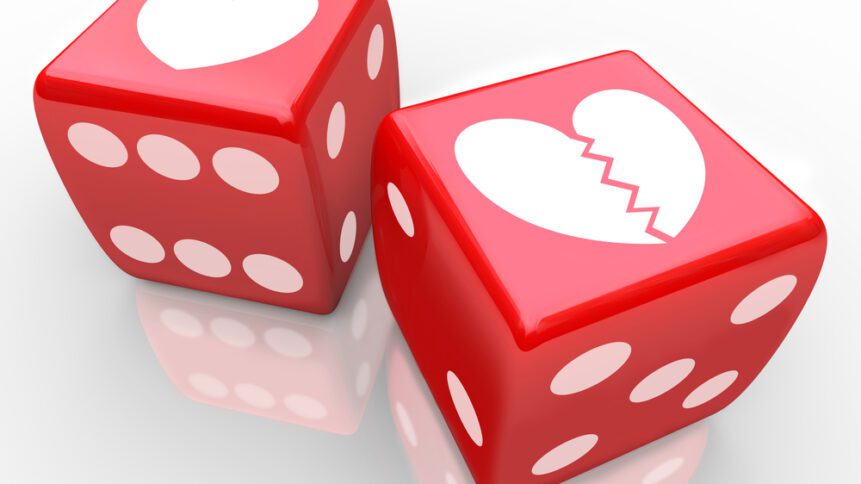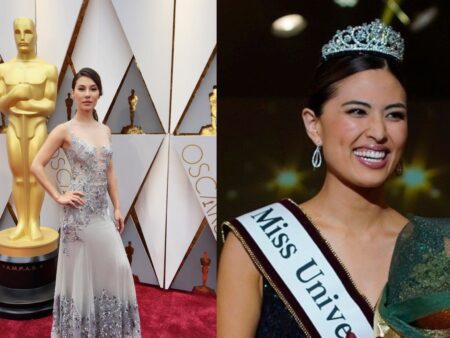
When you start IVF, you’re taking a gamble on the chances of becoming a parent.
And at some point, every good gambler discovers that the most important skill to master is knowing when to walk away.
This is a skill that’s hard for novice gamblers to learn; it’s what makes the game so dangerous. There’s always the chance that the next game or the next card will be the one you need to strike it rich. There’s a name for this—the Gambler’s Fallacy: The belief that if you’re on a losing streak, at some point, the Universe will turn it around.
Experienced players know that it doesn’t work that way; that losing this game doesn’t increase their chances of winning the next one. They create a strategy before they even start, setting a max dollar amount for their losses. Once they hit that amount, no matter how promising the next game looks, they walk away. And they look for the clues that tell them if they are in a losing battle—a bad dealer, or, more often, their own volatile emotions.
This is not just good gambling sense; it’s good business sense. I learned about the Gambler’s Fallacy when studying negotiation. Expert negotiators set a walk-away point as well—a predetermined outcome where they draw the line.
The key to staying committed to a walk-away strategy, in both gambling and business, is distancing yourself from the money. You can’t let your emotions sway you, or there’s a real risk you’ll lose big.
All of this sounds perfectly logical—until what you’re gambling and negotiating isn’t money, but your hopes and dreams for a baby.
In my four years of dealing with IVF, my negotiation training has gone out the window. I’ve fallen prey to the Gambler’s Fallacy. Over and over, my mind and heart has told me—surely we are due for some good news, right?
In my four years of dealing with IVF, my negotiation training has gone out the window. I’ve fallen prey to the Gambler’s Fallacy. Over and over, my mind and heart has told me—surely we are due for some good news, right?
____________
I went in for my egg retrieval on a Tuesday morning. My follicles were bulging; if I had any doubt of where my ovaries were before, I certainly knew then. My AMH levels were high; the nurses told me to expect about 20 eggs. Twenty! I thought, ecstatic.
I waited in pre-op, wearing the warm fuzzy socks I was told to bring and covered modestly with a soft blanket patterned with pale pink flamingos. I listened to the nurses bustling. I shared the room with another woman just coming out of her retrieval, our beds separated by a thin blue curtain. When the embryologist came to give her the good news, I couldn’t help but overhear. Thirteen beautiful eggs! She said. I could hear the tremor in the woman’s voice as she asked, “Is that good?”
“That’s amazing!” the embryologist assured her. I felt happy for her. With thirteen eggs, you might end up with five or six good embryos—what a bounty! And, truth be told, I felt slightly relieved—maybe even prideful—for myself. Twenty eggs…
A few minutes later, they came for me.
“You ready to get those eggs out?” the doctor joked, and I nodded, hobbling with the discomfort of my bloated ovaries.
I woke up some time later, groggy and disoriented, feeling like I’d just had the best nap ever. The pale pink flamingos were back.
A nurse came over and encouraged me to drink Gatorade—the first of what felt like 1,000 Gatorades I would have in the next week. I drank obediently, and as the anesthesia wore off, the anxiousness set in. I looked up expectantly every time a nurse walked into post-op, hoping to see the embryologist. This was longer than the other woman had had to wait. Every breath was a prayer.
Finally, she came in.
“I have really good news,” she said. Twenty? Twenty-five? I guessed. I could hardly breathe.
“Sixty-two!”
I looked at her in shock for a second, and then I burst into tears. The nurses laughed, and one of them brought over a box of tissues. “It’s ok, a lot of people cry!”
I could hardly believe it. Sixty-two eggs?? How many embryos would that leave us? What would we possibly do with so many?
In the following days, I napped on the couch and drank my gallons of Gatorade and watched my middle section balloon with ovarian hyper-stimulation syndrome. It all turned out ok, but the pain of that recovery was worth it regardless. Sixty-two.
We started getting the updated counts…
…58 mature
…37 fertilized
…18 three-day blastocysts
…15 five-day blastocysts
Fifteen beautiful, healthy embryos. We had them PGT-tested, and only two were considered abnormal. Thirteen. A lucky number.
Thirteen potential babies.
I told my parents the good news. “I hope you’re ready for thirteen grandchildren!” We laughed. Of course, we knew they wouldn’t all take. But surely, if you get this far with this many embryos and no problems to be aware of, the chances are high —right? The Gambler’s Fallacy striking again.
I told my parents the good news. “I hope you’re ready for thirteen grandchildren!” We laughed. Of course, we knew they wouldn’t all take. But surely, if you get this far with this many embryos and no problems to be aware of, the chances are high —right? The Gambler’s Fallacy striking again.
____________
My husband is a much savvier business person (and gambler) than I am. After my elation wore off a bit, he gently suggested that we set an exit strategy. Our walk-away point.
We’ve been clear from the beginning of this journey that if IVF didn’t work for us, we wanted to pursue adoption—but I never thought that I might have to make the call on when to stop. I assumed it would be made for me, and that I could accept.
But to choose willingly to stop?
I couldn’t even hear him at first, horrified that he would even suggest it. We hadn’t even done our first transfer!
“Thirteen,” I said. “That’s my number.” I had thirteen good embryos, and I didn’t want to let a single one of them go. I couldn’t bear the thought of one of our children being “discarded,” or letting someone else raise our baby in an embryo adoption.
“That’s almost $50,000,” he said… “That’s the cost of an adoption if it doesn’t work.”
I couldn’t listen. I was all in. I was going for broke.
A couple months later, I was back in the operating room with my flamingo friends as the doctor inserted a catheter and deposited one perfect potential baby boy into my uterus. We waited with baited breath in the following days, resisting the urge to test, until the blood results came back.
Negative.
And our second transfer: Negative.
Suddenly, we saw our babies disappearing. Each negative result felt like a death. I was exhausted, body-sore from the constant hormones and heart-sore from the disappointment and grief. My body didn’t feel like my own anymore.
How do you accept the signs of a losing battle when the bad dealer is your own body and a lifetime of love is on the line?
Over the last year, I’ve had to ask myself what I truly want. Do I want to win this game, or do I want to win the end game—having a child? At what point do we walk away from IVF so that we can put our resources into adoption, which is no guarantee either? How long do I want to yo-yo emotionally from the hormones? How much more can my body, and my heart, handle?
How do you know when to walk away from your dreams, when maybe the next transfer will be the one that works? Maybe this new prenatal vitamin or acupuncture or gluten-free diet will be the key to winning the jackpot. A sunk-cost bias sets in. We’ve already invested this much into IVF… might as well see it through.
I know this thinking is another logical fallacy. In all likelihood, “seeing it through” may mean losing $50,000. Babies aren’t doled out to those with more hope and determination. That’s just not how biology works.
I see the posts from victorious moms on social media… “Our 11th transfer was the one!” “Worth every shot!” “Five retrievals, seven transfers, one beautiful baby girl!” The carrot is dangling so close, it’s nearly impossible to stop reaching. I don’t want to be fatalistic. It’s not in my personality. I am by default a hopeful person. I’m also a classic overachiever; failure is simply not an option.
I see the posts from victorious moms on social media… “Our 11th transfer was the one!” “Worth every shot!” “Five retrievals, seven transfers, one beautiful baby girl!” The carrot is dangling so close, it’s nearly impossible to stop reaching.
I don’t want to be fatalistic. It’s not in my personality. I am by default a hopeful person. I’m also a classic overachiever; failure is simply not an option. I see possibilities and potential at every turn, and I go after them with everything I’ve got; it’s a trait that has made me highly successful in many endeavors in my life. But in this endeavor, it just might be the thing that breaks my heart. Every gambler knows that maintaining this hope is the road to failure.
And yet, it’s impossible to distance myself from what’s being gambled here. How do you view your own baby with detachment so that you can make the best choice possible, to preserve your chance of maybe winning someday? No parent should be forced to make this choice.
What I do know is that I don’t want to leave this process bitter. My faith and my philosophy both teach that we always have a choice about how we view the tragedies we face. We can choose to be overcome, or we can choose to overcome.
After negative transfers and miscarriages, after grieving the most difficult circumstances in life, I want to be able to quote the hymn, “It Is Well With My Soul”: “Whatever my lot/Thou has taught me to say/It is well, it is well with my soul.”
It sounds sweet, but it tastes bitter when to live out these words means, “Even if I don’t have a child, even if my arms are empty for the rest of my life, even if I never feel a living being in my womb again… ‘it is well, it is well with my soul.’”
I hope that with time, I’ll get accustomed to the taste. I hope with time, I can find lessons in each spin of the IVF roulette wheel. I hope it happens before we reach our walk-away point.
Contributor
Ariel Curry
Ariel Curry is an editor and writing coach with 10 years of experience in publishing. She enjoys brainstorming and outlining new book ideas, bringing clarity and purpose to prose, and helping authors find resilience in their writing journey. Ariel lives in Chattanooga, TN, with her husband and their dogs, Enyo and Tenaya.

Listen to stories, share your own, and get feedback from the community.


















